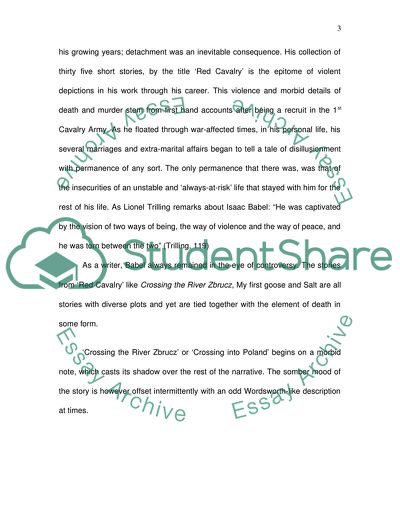Cite this document
(Death, Despondence and Detachment in Isaac Babels Stories Book Report/Review, n.d.)
Death, Despondence and Detachment in Isaac Babels Stories Book Report/Review. https://studentshare.org/literature/1566097-short-story-author-analysis-isaac-babel
Death, Despondence and Detachment in Isaac Babels Stories Book Report/Review. https://studentshare.org/literature/1566097-short-story-author-analysis-isaac-babel
(Death, Despondence and Detachment in Isaac Babels Stories Book Report/Review)
Death, Despondence and Detachment in Isaac Babels Stories Book Report/Review. https://studentshare.org/literature/1566097-short-story-author-analysis-isaac-babel.
Death, Despondence and Detachment in Isaac Babels Stories Book Report/Review. https://studentshare.org/literature/1566097-short-story-author-analysis-isaac-babel.
“Death, Despondence and Detachment in Isaac Babels Stories Book Report/Review”. https://studentshare.org/literature/1566097-short-story-author-analysis-isaac-babel.


